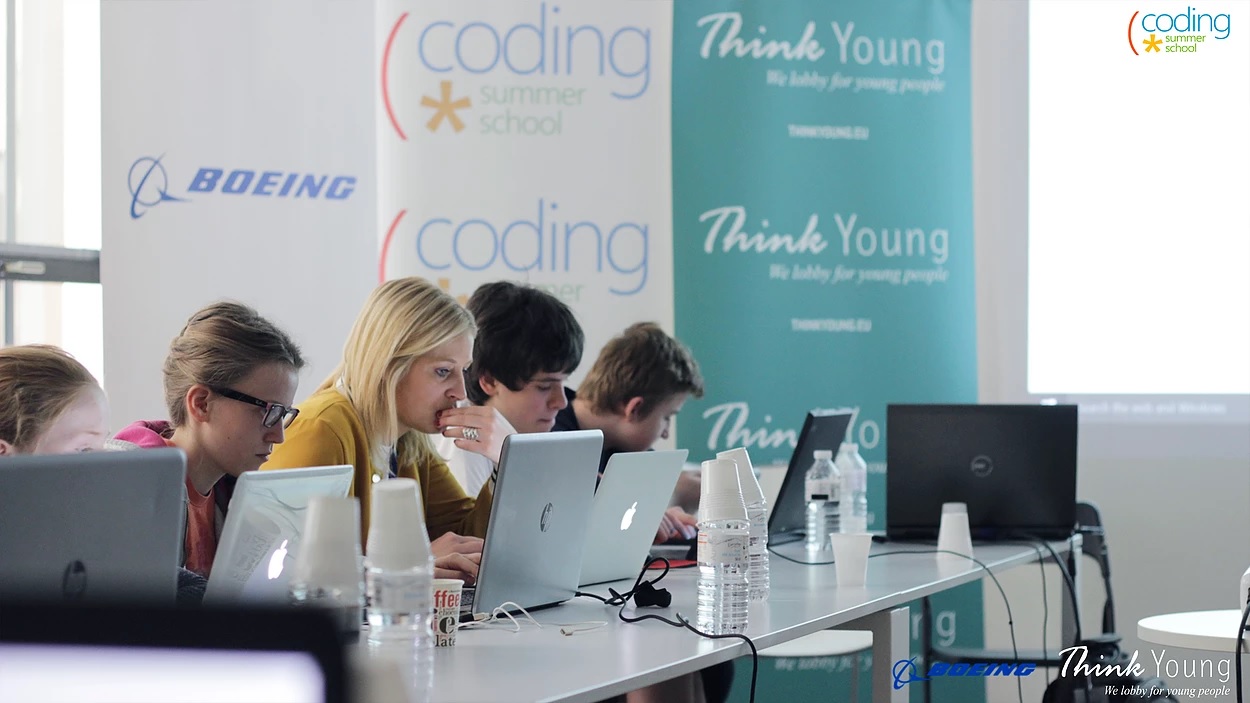Coding Summer School
Coding Summer School is an intensive week-long event that immerses primary- and secondary age students in the world of coding and app development. The hands-on programme is taught by industry professionals and organised by ThinkYoung in cooperation with Boeing. By giving students a week-long immersive experience that culminates in students creating their own app, the programme aims to enthuse students for STEM subjects and kick-start their education in this field.
Coding Summer School is an intensive week-long event that immerses primary- and secondary age students in the world of coding and app development. The hands-on programme is taught by industry professionals and organised by ThinkYoung in cooperation with Boeing. By giving students a week-long immersive experience that culminates in students creating their own app, the programme aims to enthuse students for STEM subjects and kick-start their education in this field.

While the current education systems usually leave little room for experimentation, innovative approaches in non-formal education settings can provide useful evidence about what works and what doesn’t. In this sense showcasing good practice examples from non-formal education initiatives provides policy makers with unique insights that can inform policy design and implementation. This impact can be felt in the interest from the Estonian Presidency to join the 2017 Coding school along with education ministers from the 28 member states in order to share best practises in innovative ways of educating. This involvement will serve as a base for the European Council’s upcoming discussions on the future of Education in the European sphere. Initiatives such as the Boeing & ThinkYoung Coding Summer School can be invaluable to policy makers as an instrument to steer the debate.
The goal of this initiative is to foster the interest of STEM skills and kick-start education in this field for young people, with a specific focus on the gender gap in STEM. In the 2 editions run of the Coding Summer School roughly 200 kids between the ages of 11 and 17 have been trained. With 70% of females targeted and reached.
Coding Summer School is an initiative of Boeing.
In the 2017 edition of ThinkYoung and Boeing's Coding Summer School, 70% of the students that enrolled in the programme were girls.






